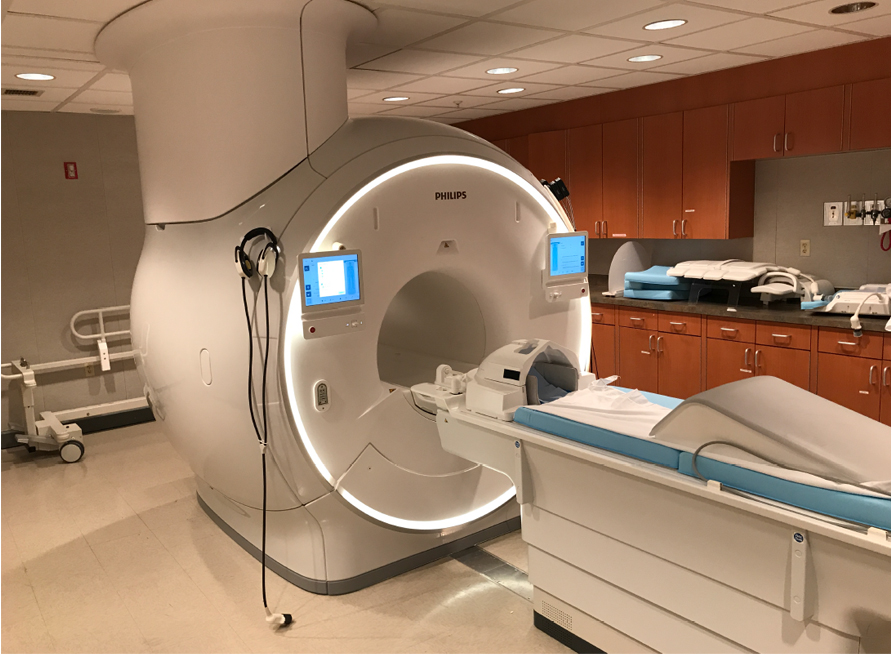Job opportunities
Open positions and projects for postdoctoral fellows, graduate and undergraduate students.
Postdoc in advanced MRS @ Johns Hopkins (acquisition, analysis, clinical application)


Are you interested in exciting new methods for magnetic resonance spectroscopy, and their application in multimodal studies? Have you recently graduated and are now wondering about the ideal next step in your career? Look no further! Come and join us (Georg Oeltzschner, Richard Edden, Peter Barker) for a postdoc in the Division of Neuroradiology at Johns Hopkins in Baltimore.
We offer a great opportunity to join the productive and vibrant environment at the intersection of methods development and clinical application. Our work rests on three main pillars:
- Sequence development and implementation of advanced MRS acquisition methods (largely Philips, Siemens at 3T, occasionally 7T). We are interested in detecting low-concentration metabolites using spectral editing, and are looking to establish and develop new MRS techniques (multi-parametric relaxometry/fingerprinting, metabolite cycling, macromolecule characterization).
- Data analysis, post-processing, open-source software development. We believe that flexible and openly accessible analysis tools are an absolute necessity to improve the robustness and reproducibility of MRS. We develop the open-source software packages Gannet and Osprey, and are looking to investigate novel methods of data processing and linear-combination modeling, including cloud/container computing, fully automated analysis and quality control of large datasets, and deep-learning-based spectral quantification. We particularly want to provide methods for advanced modeling of multi-parametric and dynamic acquisition techniques, including MRS fingerprinting, spectral editing, functional MRS, and diffusion-weighted MRS.
- Application of new techniques in clinical research and neuroscience. We enjoy our collaborations with a growing worldwide network of clinical researchers and neuroscientists. Currently, we are involved in studies of mild cognitive impairment, Alzheimer’s disease, Parkinson’s disease, autism spectrum disorder, Tourette’s syndrome, attention-deficit hyperactivity disorder, hepatic encephalopathy, substance abuse disorders, HIV, and many more. Our studies frequently include other imaging modalities, including molecular imaging, fMRI, and DWI.
You will work within the Department of Radiology at Johns Hopkins and the F.M. Kirby Center for Functional Brain Imaging at Kennedy Krieger Institute. Multiple clinical scanners (Philips & Siemens, 3T) are available in Radiology. The scanners at the Kirby Center (Philips 3T & 7T) are research-only, and equipped with state-of-the-art hardware. The Kirby Center further houses high-field animal scanners (Bruker 11.7T and 17.6T).
Preferred Qualifications
Ideally, you have experience working within an imaging research center, either in sequence development, data acquisition, and/or data processing and analysis.
- Programming experience (Python, MATLAB, R, C++ …) is a great advantage.
- Experience with signal processing pipelines, non-linear optimization and modeling, or automated data analysis are desirable.
- Deep learning, machine learning, and data science backgrounds and experience are highly welcome, but not required.
- Experience with reproducible research, open science practices, version control (OSF, Git, Docker, Jupyter, R Markdown etc.) is desirable.
- Understanding of MRI physics is advantageous, but can be trained if necessary.
- While welcome, you do not need to have prior experience with MRS. You can learn the nuts and bolts from us.
Requirements
You should have a PhD or MD, or be in your final year of your PhD or MD studies. There are no strict requirements with regard to the field you are graduating in; our team has included physicists, chemists, medical doctors, neuroscientists, biologists, psychologists, and biomedical engineers.
For non-US citizens, the appropriate work visa will be required (typically J-1). The visa application process is initiated by the university.
Training, Mentoring & Career Development
Our motivation and our job is to help you be successful and pursue the career that you want. We believe that the best way to achieve this is a strong and trusting relationship with your supervisors and mentors.
- You will work closely with an experienced group of researchers from all career phases.
- Your scientific projects can be chosen and modified appropriately to align with your career goals, emphasizing your strengths, identifying and addressing your training needs.
- You will be trained in all aspects of your research, including hands-on training in manuscript writing, presentation-making and presenting, and collaborative teamwork.
- You benefit from our global network of collaborators and partners.
- You will receive plenty of advice, guidance and feedback when you write your own grant applications.
- You can take advantage of the many career development resources at Johns Hopkins, including a mandatory Individual Development Plan (IDP).
Compensation & Benefits
Compensation is commensurate with qualifications and experience, and institutionally recommended to follow NIH postdoc stipend levels (i.e. currently a minimum of $61,008 for first-year postdocs).
Benefits include health insurance, prescriptions, dental & vision care. Detailed policies can be found here.
Life in Baltimore & Maryland
Baltimore is full of beauty, events, art, and history, wherever you look. Located on the Chesapeake Bay, Baltimore breathes the water, but in Maryland, the mountains are never more than a 2-hour drive away. Baltimore is also an affordable place to live, and a postdoc salary goes a long way here.
Learn about the goings-on in town:
The great outdoors in Maryland:
Contact
If you are interested in this position (or have further questions), please send an e-mail with your current CV to Georg Oeltzschner (goeltzs1 (a) jh (dot) edu). We are looking forward to hearing from you!